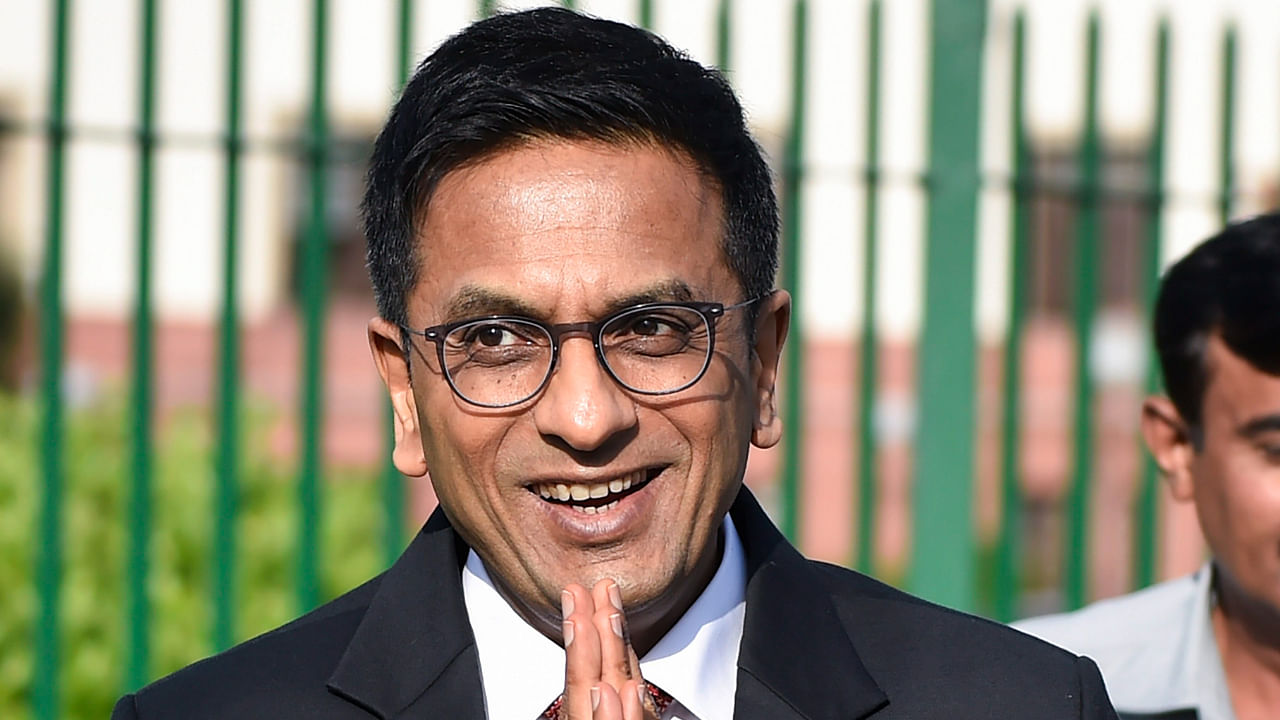
Justice Chandrachud, has been part of several Constitution benches and landmark verdicts of the top court including on matters relating right to privacy and Decrimalising 377.
As D Y Chandrachud will become the 50th CJI on November 9, here are few of the many landmark verdicts that he has been a part of.
Decrimalising 377
In a historic ruling against section 377 which called for punishment of any individual who engaged in sexual activity “against the order of nature,” a five judge bench comprising of the then CJI Dipak Misra, D Y Chandrachud, Justices R F Nariman, A M Khanwilkar, and Indu Malhotra opined that Consensual gay sex is not a crime, striking down a British era law that according to the SC violated the right to equality, triggering celebrations among LGBTQ activists.“History owes an apology to members of the community for the delay in ensuring their rights,” the apex court added as they decriminalised section 377 in September 2018.
Right to privacy
August 24, 2017, the Supreme Court unanimously declared that the right to privacy was a Fundamental right under the Constitution. Justice D Y Chandrachud was a member of the bench that said the right to privacy is an "intrinsic part of Right to Life and Personal Liberty under Article 21 and entire Part III of the Constitution".
Sabarimala Case
On September 28, 2018 the court pronounced its verdict on a clutch of pleas challenging ban on the entry of women of menstrual age in Kerala's Sabrimala temple saying law and society must act as levellers. The bench ruled that devotion cannot be subjected to discrimination and patriarchal notion cannot be allowed to trump equality in devotion.
Hadiya marriage 'love jihad' case
In the alleged love jihad case ruling back in 2018, bench comprising Chief Justice Dipak Misra and justices A M Khanwilkar and D Y Chandrachud overturned a lower court's ruling that the December 2016 marriage between 25-year-old Akhila Ashokan (who changed her name to Hadiya post marriage) and Shafin Jahan was illegal. However, they said that the National Investigation Agency (NIA) may continue its investigation in the matter. Justice Chandrachud upheld that an adult’s right to decide on marriage or change religion falls within their right to privacy and liberty.
Abortion for minors and unmarried women
In a 2022 SC landmark verdict, a bench of Justices D Y Chandrachud, A S Bopanna and J B Pardiwala had included unmarried women for abortion between 20-24 weeks of pregnancy under the Medical Termination of Pregnancy Act(MTP), saying limiting the provision to cover only married women will render it discriminatory and violative of Article 14. The top court said that it could not possibly be the legislature's intent to deprive minors of safe abortions.
Criminalising marital rape
In its ruling in September 2022, a bench comprising Justices D Y Chandrachud, A S Bopanna and J B Pardiwala, along with including minors rights to abort held that the meaning of the words "sexual assault" or "rape" under the rules of MTP Act, includes a husband's act of sexual assault or rape committed on his wife. "The meaning of rape must therefore be understood as including marital rape, solely for the purposes of the MTP Act and any rules and regulations framed thereunder," it said.
Commission for women in army
A bench headed by Justice D Y Chandrachud said the process by which women officers were evaluated did not address the gender discrimination concern raised in the verdict delivered by the apex court last year. The Supreme Court in March 2021 allowed the pleas of several women Short Service Commission (SSC) officers seeking grant of permanent commission in the Army, while holding that the Annual Confidential Report evaluation process was flawed and discriminatory in nature. The bench also noted that the structure of our society is created by males for males where talk of equality is a farce and since Independence, efforts have been made to bridge the gap and grant equal opportunity to men and women.
Aadhaar Act
Being the sole voice of dissent on the passing of the Aadhaar act that provides a nationally recognised identity to Indians, D Y Chandrachud called the act ‘unconstitutional”. The court upheld the passage of the Aadhaar Bill as a Money Bill by the Lok Sabha. However, Justice D Y Chandrachud, who wrote the judgment separately, said that the Aadhaar Act could not have been passed as Money Bill as it amounted to a “fraud on the Constitution,” calling it a violation of “informational privacy and data protection.”
Bhima-Koregaon Case
In his famous dissent against the imprisonment of several activists in Bhima Koregaon under UAPA, justice Chandrachud, writing a separate minority verdict in which he disagreed with the views of Chief Justice Dipak Misra and Justice A M Khanwilkar held that dissent is a symbol of "vibrant democracy" and the voices in opposition cannot be "muzzled" by persecuting those who take up unpopular causes, Justice D Y Chandrachud said in his dissenting judgment in the Koregaon-Bhima violence case. SC however, rejected the bail plea of the activists in a 2018 ruling.
Gyanvapi mosque
On May 20, the Supreme Court transferred the civil suit filed by Hindu devotees on Gyanvapi mosque from civil judge (senior division) to district judge, Varanasi. A bench of Justices D Y Chandrachud, Surya Kant, and P S Narasimha said it will be better if a district judge handles the case and made it clear that it is not casting any aspersion on the civil judge (senior division) who was earlier dealing with the suit.
(With agency inputs)